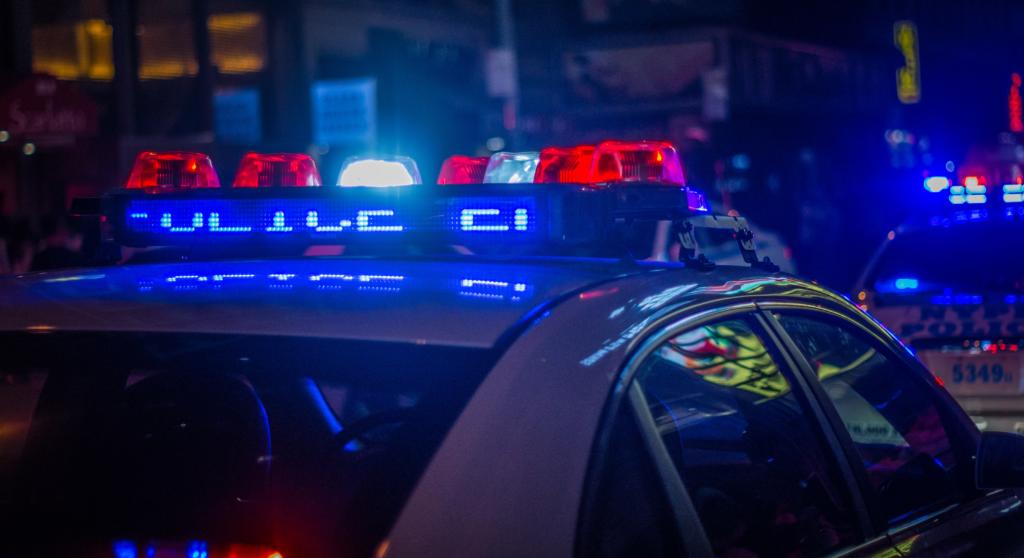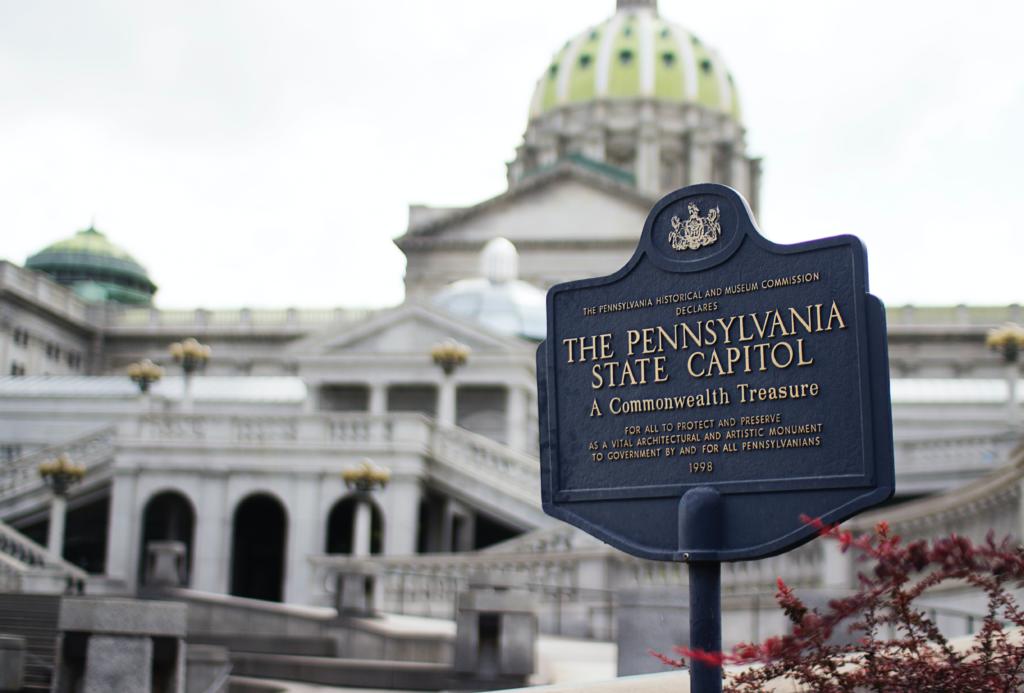Reports of yet another criminal incident involving a member of the Philadelphia District Attorney’s Office have highlighted recent and ongoing investigations by the Federal Bureau of Investigation and Pennsylvania Attorney General’s office into the administration of District Attorney Larry Krasner.
On June 11, G. Lamar Stewart, who was initially appointed by DA Krasner as a county detective, and later promoted to the position of “Chief of Community Engagement,” allegedly used the lights and siren while operating a District Attorney’s office-issued Ford Crown Victoria to pull over an FBI agent driving a federally issued Chevy Suburban in an alleged road rage incident on Lincoln Drive. The incident raises several problems for the Krasner administration, including:
- County detectives assigned to the District Attorney do not enforce traffic infractions. The office protocol is to call Philadelphia police for uniformed assistance and observe the offending vehicle until assistance arrives.
- Stewart had reportedly had his law enforcement authority and ability to carry a firearm revoked recently due to a protection from abuse order filed against him by his ex-wife in Montgomery County. PFA orders are issued by judges when evidence is presented to the court that the respondent engaged in violent or threatening behavior.
- Upon being stopped, the FBI agent identified himself to Stewart, who was in plain clothes, and demanded to see his badge and identification. Instead of lawfully doing so, police sources say that Stewart fled the scene, causing the FBI agent to pursue while calling Philadelphia Police for assistance.
- After he was finally stopped on Wayne Avenue, Stewart allegedly still refused to identify himself to the FBI Agent and 14th District officers, who filed a report.
- If Stewart’s law enforcement authority was suspended due to his PFA, why was he still allowed the use of a vehicle equipped with emergency equipment and a police radio?

To make matters worse, sources confirm that Philadelphia Police are now investigating another incident where Stewart allegedly tried to make an illegal traffic stop on an off-duty female police officer, who states that Stewart attempted to pull her over at night and fled the scene when she demanded to know his identity. PW contacted Jane Roh and Dustin Slaughter of the District Attorney’s Office for comment, but they did not respond.
Had this incident been isolated, it may not have been newsworthy. However, this comes as the latest of many criminal incidents perpetrated by Krasner appointees. In fact, the Stewart incident, currently under FBI investigation, is not even the first scandal involving a criminal road rage incident to arise from the Krasner administration.
In September 2020, Anthony Voci, Krasner’s then-Chief of Homicide prosecution, had allegedly ordered police pursue and detain Khasandra Franklin, an African-American female motorist who reportedly cut him off in traffic. In her civil rights lawsuit, Franklin claims that Voci, who was riding a motorcycle and not on official business, allegedly tried to pull her over. When Franklin refused, her suit claims that Voci had roughly six officers pursue her to her Mt. Airy home, where she was arrested and her car was impounded. The charges were later dropped by the state attorney general’s office.
Franklin’s claims of civil rights abuses in the Krasner administration are similar to a complaint in federal court by Detective Derrick Jacobs, a veteran Philadelphia Police detective, who claims that Assistant District Attorneys Tracy Tripp and Vincent Corrigan, both Krasner appointees, abused their authority to pressure black and Latina police investigators to change their statements in police use of force investigations, in violation of the civil rights of the detectives and the subjects of their investigation.
Then there are the myriad bizarre examples of behavior emerging from the 600-member office of Philadelphia’s highest elected law enforcement officer over the last four years, which include:
- Krasner’s firing of veteran victim services director Tami Levin to appoint Movita Johnson-Harrell, who was later convicted of stealing from nonprofit organizations to maintain an expensive lifestyle, in addition to making donations to Krasner’s campaign as well as her own for state representative. While serving as a director in the Krasner administration, Johnson-Harrell’s son Donte was arrested and charged with domestic assault for allegedly punching the 27-year-old mother of his son in the face. Johnson was arrested and freed on $1,000 bail, but the prosecution was withdrawn by the District Attorney’s Office.
- In his first financial report as an elected official, Krasner disclosed that he owed money to Michael Giampietro, whom he subsequently hired for a $160,000-a-year advisory position in the DA’s Office.
- In his first week as district attorney, Krasner fired over 30 veteran prosecutors, and replaced them with attorneys who had no prosecution experience, as well as numerous recent law school graduates.
- Krasner’s new hires were trained by Adam Foss, a former Boston prosecutor who was brought in for nine weeks in 2018. Foss is currently under investigation by the Suffolk County (Boston) District Attorney’s office after being accused by several women for sexual assault.
- ADAs Patricia Cummings and Rachel Black, who supervise and work cases with ADAs Corrigan and Tripp from the Jacobs case, have recently been formally admonished for lying to judges in open court,
- An aide to Krasner, Dana Bazelon, was arrested in May 2020 and charged with child endangerment after she left her 4-year-old daughter unattended in a locked car.
- DeVonte’ Douglass, a gun violence counselor appointed by Krasner, shot and killed Vernon Harris, a male prostitute he had met with for sex in a public graveyard parking lot during office hours for $500. While the Attorney General’s office ruled the homicide as self-defense, Douglass was charged with soliciting a prostitute, possession of an instrument of crime, and misleading investigators about the facts surrounding the fatal shooting.
- ADA Joseph Torda’s former lover, a sex-worker and internet porn actress, accused Torda of breaking into her home, assaulting her and stealing porn from her, porn that allegedly featured Torda.
- Reports of numerous campaign finance violations between Krasner and members of Real Justice PAC of San Francisco.
These scandals illustrate a pattern where, at best, the District Attorney’s Office seems to have no oversight or official unit that polices itself in the way a police internal affairs division would. Worse, while these scandals frequently arise from the District Attorney’s Office, the city continues to be on track to set grim records for violent crime. The increase in crime raises questions as to at what point the convergence of the district attorney and mayor’s policies restricting proven policing tactics, bail, charging, and sentencing guidelines may constitute a criminal dereliction of duty warranting state or federal intervention.

LEGISLATIVE OVERSIGHT
On June 15, 2021, the Pennsylvania House of Representatives passed a bill sponsored by Rep. Martina White (R-Philadelphia) to amend the state constitution to allow a potential recall election for state, county, and municipal offices to include district attorneys, mayors, governor, treasurer, attorney general, and auditor general.
“As we’ve seen throughout the country, residents in states that allow for the recall of state executives are using their right to recall governors and mayors who overstepped their authority,” White said. “But Pennsylvania has no recall provisions. Voters can elect whoever they want in office but lack the right to remove their public officials as well when they are not living up to the roles and responsibilities or the best interest of their citizens.”
This bill is a first for a state in which elected officials can only be removed from office if they are convicted, not merely indicted, of a crime. Traditionally, the consequences for bad policy and corruption have been delegated to the ballot box. However, record low voter turnout for the 2021 primary election and an imbalance of campaign finances have highlighted the need for increased oversight, especially where elected officials are charged with making policies that have life-and-death consequences.
“Given their broad, individually vested authority, executive officers sometimes initiate policies at odds with the voters who elected them,” White said. “Recall elections would give them a remedy for waiting for the expiration of an official’s term.”
Similarly, Georgia’s state legislature is also trying to address a shocking rise in crime in their biggest city. “Atlanta has been the engine that runs Georgia,” Rep. Darlene Taylor (R-Thomasville), said late last month during the House Public Safety and Homeland Security Committee’s initial hearing. “We cannot let this deteriorate.” Homicides in metro Atlanta are up by 60 percent so far this year over 2020.
Like Mayor Jim Kenney in Philadelphia, Mayor Keisha Lance Bottoms initially blamed the COVID-19 pandemic for her city’s rise in crime. However, even as the pandemic ebbs crime has continued to rise. Dean Dabney, chairman of the Department of Criminal Justice and Criminology at Georgia State University, said that trend was particularly pronounced in Georgia. “As one of the first states to re-open its economy, Georgia drew people from other states anxious to escape mandatory lockdowns,” he said. Dabney also credits violent protests and politicized prosecutions of police officers following the 2020 deaths of George Floyd and Rayshard Brooks for a larger role in the crime wave than COVID-19; because of their impact on law enforcement.
“There’s been a slight drop in community willingness to engage with police,” he said. “But more of it is due to police not feeling comfortable with the rules of engagement.”
Several members of the Georgia House committee echoed this sentiment during hearings. “There’s been a tidal wave that’s touched down on law enforcement,” committee Chairman J. Collins, (R-Villa Rica), said. “Law enforcement [officers] are scared to do their jobs.” In response, Gov. Brian Kemp (R-Georgia) has committed up to $5 million of his Emergency Fund to bring crime in Atlanta under control.

PUBLIC CORRUPTION LEADS TO INCREASED CRIME
Crime is a hot topic for discussion, but little has been done to address the disturbing pattern of alleged corruption in the Krasner administration. This may be because of an incestuous relationship between the District Attorney’s office and the agencies charged with investigating it. Attorney General Josh Shapiro’s office conducted the Johnson-Harrell, Bazelon, Douglass, and Torda cases investigations. In his case, Detective Jacobs reported the conduct of ADA Tripp to the office of Police Commissioners Christine Coulter and Danielle Outlaw, both appointees of Mayor Kenney. Despite all of the scandals outlined in this article, all of which have received media coverage, none have resulted in a criminal complaint or official sanction of DA Larry Krasner or his policies.
Is this because the mayor who runs the police department and state attorney general are elected from the same caucus and voting base as Krasner? The question may seem partisan, but the potential conflict of interest should not be ignored. Considering that Philadelphia has no independent inspector general with the jurisdiction to investigate or refer charges for elected officials like Council Members, the Mayor, Sheriff, or District Attorney; there are serious questions as to who can rein in waste, fraud, and abuse in America’s sixth largest city. The Attorney General’s Office did not respond to PW’s request for comment.
This leads back to the FBI and United States Attorney. Before the 2020 election, U.S. Attorney William McSwain was believed to be looking into investigating the Krasner administration. Federal prosecutors may investigate corrupt public officials and their campaigns like organized-crime rings, and seek charges under Racketeer Influenced and Corrupt Organization (RICO) laws. These laws were enacted as a way to combat organized crime, and a majority of states have since passed similar laws and used them to prosecute corrupt officials in any situation where organizations engage in criminal activity for the benefit of their officers or owners. Via email, Jennifer Crandall from the U.S. Attorney’s Office wrote: “Our office can neither confirm nor deny the existence of any investigation.”
While they are complex and vary by state, RICO laws typically involve a person engaging in a “pattern of criminal behavior” through an “enterprise” over a certain period of time for their financial gain, according to Notre Dame law professor G. Robert Blakey, who helped draft the 1970 federal RICO Act and similar legislation in 22 states. Prosecutors could look at criminal activity involving a use of government for personal gain, Blakey added.
While Philadelphia becomes more dangerous by the day, the importance in addressing the disturbing pattern of corruption within the Krasner District Attorney’s office which sold itself to Philadelphia’s voters as “reformers” is essential. To restore trust in the city’s criminal justice establishment, all eyes are on our state and federal government to step in and restore trust in our city’s criminal justice system.





